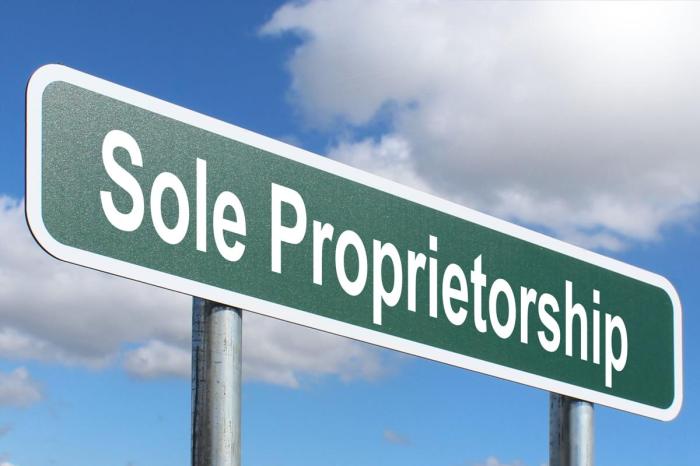When the owner of a sole proprietorship dies, a complex array of legal, financial, and operational challenges arise. Understanding the implications and taking proactive steps can ensure a smooth transition and protect the interests of the business, the owner’s family, and other stakeholders.
This comprehensive guide provides a detailed overview of the legal implications, business continuity options, tax considerations, estate planning strategies, insurance and benefits, and communication and notification requirements associated with the death of a sole proprietor.
Legal Implications
The death of a sole proprietorship owner has significant legal implications. The business is not a separate legal entity, so the owner’s death dissolves the business.
Probate Process
The probate process is the legal process of administering the deceased owner’s estate. This includes identifying and valuing the assets and debts of the estate, paying off creditors, and distributing the remaining assets to the heirs.
The probate process can be complex and time-consuming. It is important to obtain legal representation to ensure that the process is handled properly.
Obtaining Legal Representation, When the owner of a sole proprietorship dies
An attorney can provide guidance on all aspects of estate administration, including:
- Filing the necessary paperwork
- Proving the will
- Distributing the assets
- Paying off debts
Business Continuity: When The Owner Of A Sole Proprietorship Dies

There are several options for continuing a sole proprietorship after the owner’s death. These include:
- Selling the business
- Transferring ownership to a successor
- Closing the business
Transferring Ownership
Transferring ownership to a successor is a common way to continue a sole proprietorship. The successor can be a family member, friend, or business partner.
To transfer ownership, the owner must create a new legal entity, such as a corporation or limited liability company. The owner then transfers the assets and liabilities of the sole proprietorship to the new entity.
Closing the Business
If there is no successor to take over the business, the owner may choose to close it down.
To close a sole proprietorship, the owner must:
- Notify creditors and government agencies
- Sell off assets
- Pay off debts
- Distribute the remaining assets to the heirs
Tax Considerations
The death of a sole proprietorship owner has several tax implications. These include:
- The income of the business is taxed as the owner’s personal income.
- The assets of the business are subject to estate tax.
- The sale of the business may be subject to capital gains tax.
Tax Advice
It is important to obtain tax advice to ensure that the estate is handled in a tax-efficient manner.
An accountant or tax attorney can provide guidance on:
- Preparing the estate tax return
- Minimizing estate taxes
- Structuring the sale of the business to minimize capital gains tax
Estate Planning

Estate planning is an important part of any financial plan. It allows you to control what happens to your assets after your death.
There are a number of estate planning tools available, including:
- Wills
- Trusts
- Life insurance
Creating an Estate Plan
An estate plan can help you:
- Protect your assets
- Minimize estate taxes
- Provide for your family
Insurance and Benefits
There are a number of insurance policies that can help protect a sole proprietorship and the owner’s family. These include:
- Life insurance
- Disability insurance
- Health insurance
Insurance Coverage
Insurance coverage can provide financial protection in the event of the owner’s death, disability, or illness.
It is important to obtain adequate insurance coverage to protect the business and the owner’s family.
Communication and Notification

It is important to communicate the owner’s death to customers, suppliers, and employees.
The owner’s family should also notify creditors and government agencies.
Creating a Communication Plan
A communication plan can help ensure that all necessary parties are notified of the owner’s death.
The communication plan should include:
- A list of who to notify
- The information to be communicated
- The method of communication
FAQ Overview
Who is responsible for winding down the business if the owner of a sole proprietorship dies without a will?
In the absence of a will, the state’s intestacy laws will determine the distribution of the business and its assets. The probate court will appoint an administrator to oversee the process.
What tax implications arise when a sole proprietorship is sold after the owner’s death?
The sale of a sole proprietorship after the owner’s death is generally treated as a capital gain or loss for tax purposes. The estate may be liable for capital gains tax on the proceeds of the sale.
What insurance policies are essential for protecting the business and the owner’s family in the event of the owner’s death?
Key insurance policies include life insurance to provide financial support to the family, disability insurance to protect against lost income, and health insurance to cover medical expenses.